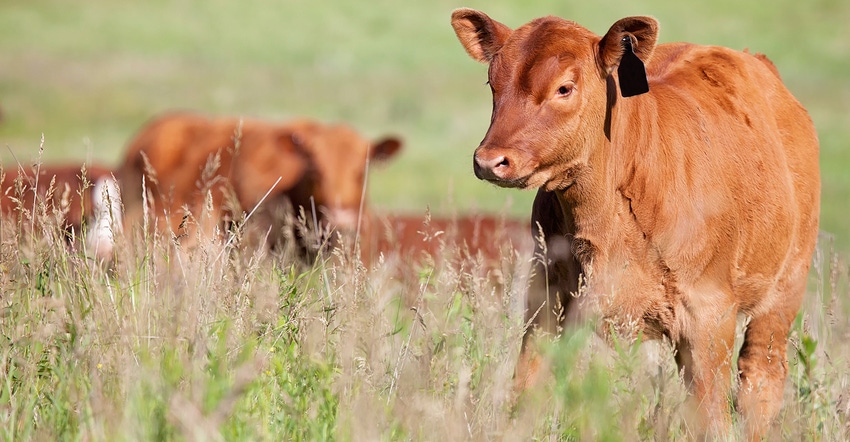August 9, 2017

By Duane Dailey
Japan says "Whoa, go slow" on imports of frozen beef from the United States. To safeguard its own beef farmers, Japan raised tariffs on U.S. beef from 38.5% to 50%.
"This increases the price of U.S. beef for Japanese consumers," says Scott Brown, University of Missouri livestock economist. "Less foreign consumption increases beef supply here. In turn, that lowers prices all the way back to farms in Missouri.
"We have an unexpectedly big supply of beef and a growing U.S. cow herd," Brown says. "Any drop in exports puts pressure on beef prices here."
Japan is the top beef buyer of U.S. beef. "It's a strong market," Brown explains. "Last year, they bought $1.8 billion in beef and beef products."
Foreign trade is important for all Missourians. Agriculture ranks No. 1 as a revenue source for the state. Cattle top the list. Last year, the revenue for U.S. cows and calves was $67.8 billion. In comparison, feed grains returned $56 billion while the soybean crop hit $39 billion.
Missouri ranks third state in the nation in cow numbers, with 2 million head. To show the efficiency of Show-Me-State farmers, calf numbers are second at 1.89 million.
Ten percent of U.S beef goes to export.
There is an upside
Looking for a bright side of the news from Japan, Brown says the tariff bump covers only frozen, not refrigerated, beef.
"Undoubtedly, we will send more non-frozen beef to Japan," he says. "But, they may reach a cap on that market as well."
Nearby Australia appears to benefit from the cap imposed by Japan. However, it does not have a large beef supply. "Droughts cut their beef herds and beef exports."
Another plus for U.S. beef producers is Missouri's high-quality beef, Brown says. "[The] Japanese prefer our corn-fed, Prime-grade beef. Australia doesn't have the corn or beef quality," Brown says.
Australia does have one huge advantage: It recently signed a bilateral trade agreement that reduces the tariff on Australian beef headed to Japan." They face no safeguard cap."
The U.S., on the other hand, canceled trade talks for greater access under the Trans-Pacific Partnership. If TPP were in place, the United States would not have hit this import cap and higher tariff.
"It's time to get serious about making our own bilateral trade deal with Japan," Brown says.
The 50% tariff started Aug. 1. It ends March 31, 2018.
Consumer confidence
In other news, a recent report showed growth in consumer spending. While consumer spending only rose from 1.2% to 1.6%, any increase benefits all U.S. meat producers.
"More domestic consumption will be required if exports fall," Brown says. "Increased demand is needed for our growing meat supplies."
Dailey is a retired MU Extension professor. He writes from his home in Columbia.
You May Also Like




